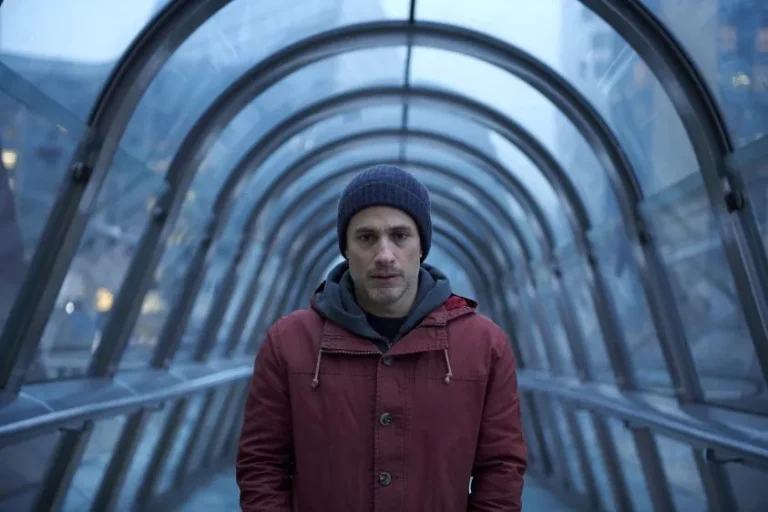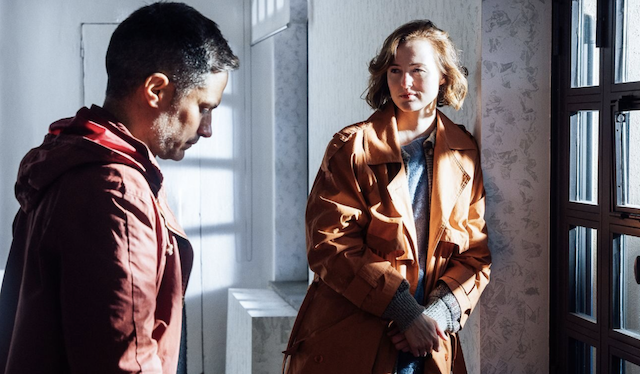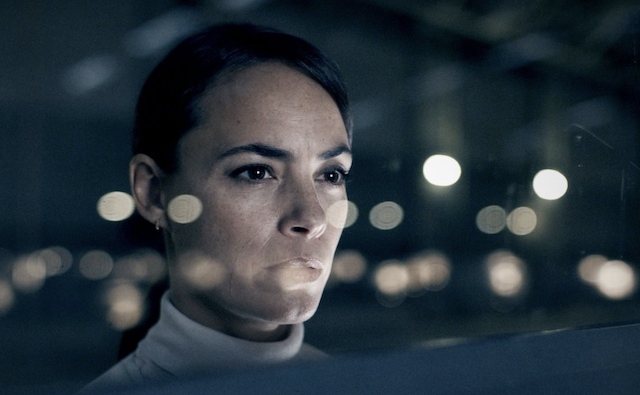
@Courtesy of Cinecittà
Another End : A melancholic, philosophical take on science fiction, Piero Messina’s ensemble drama contemplates a futuristic twist on the afterlife and its implications for those whom the deceased have left behind. Gael García Bernal stars as Sal, who has recently lost his partner Zoe in a car accident. When Sal’s sister Ebe (Bérénice Bejo) suggests he use a new technology to transplant Zoe’s memories into the mind and body of a stranger (Renate Reinsve), he finds himself confronted with a new opportunity to say goodbye to his love—but at what price? A rare blend of high-concept and deep feeling, Another End is a moving work on human connection in an increasingly virtual world.
Directed by : Piero Messina
Country : Italy/U.K./France
Language : English and Spanish with English subtitles
Running Time : 129 minutes

@Courtesy of Cinecittà
- Exclusive Interview with Director Piero Messina
Q : One of the silent characters of your movie is the stylized setting: can you talk about how and why you created that environment for Another End?
Piero Messina – About the setting, there is a funny story that explains how I did try to create this world. All my collaborators were asking me which kind of sci-fi movie we were going to make, so I was trying to give them as many references as I could. I was just trying to help them to follow my idea, my vision. Then little by little I realized that while I was trying to state something, I was betraying what I wanted to do. So I decided to surrender.
I told everyone to stop for a moment because I didn’t truly know which world my movie was set in. I just felt instinctively what belonged and what didn’t belong in that world. So we started working in a very intuitive way, we started selecting objects, landscapes, and pictures of different cities, and driven by my instinct I started picking things like a chair, and a table. I wanted to create a world that had to be abstract, suspended, like a sort of fairy tale.
I realized at the end of this very long and empirical process that I was creating a setting that wasn’t coherent with some kind of specific genre but was more attached to the feelings of my story. Whatever resonated with what I was feeling through this story, entered into the movie. The funny thing is the more this process developed, through the discovery of objects, landscapes, and so on, the more the setting started being specific. We started discovering it all together, Another End in some way created itself.
Q : Another End deals with some important topics of our time, first of all how it is more difficult today to deal with the idea of identity. What would you like for the audience to grab watching this movie?
Piero Messina – First of all, I would like the American audience, actually the audience all over the world, to experience the romantic side of Another End, even before the philosophical issues and the questions that the movie asks, that I asked myself. I want the viewers to experience the romantic journey we all did making this film. I call it the “Summer Ending Feeling”, with the audience coming back home with that sense of nostalgia, maybe a little sad because the summer is gone but going back with the memory to taste those happy moments.
Then there are the questions that the movie tries to answer: what does it mean to love? What does it mean to start a relationship? Do we stick to the words, the memories, to what we think about another person? Or there is also a corporal, sensual dimension that is fundamental in relationships? I feel we are overestimating more and more everything that concerns the abstract dimension of human relationships.
Words, thoughts, memories, while we don’t value body contact. By that I mean being together, not the body as an aesthetic model. I found this dimension when I became a father, I fell in love with two little human beings I couldn’t talk to, we had nothing to share but body language. A connection through smell, touch, and everything our bodies could share. This dimension is not only about the father/son relationship, it is about any kind of relationship. I think sharing a space is the most spiritual way to be together with another person.
Q : How has it been directing stars like Gale Garcia Bernal, Renate Reinsve, Berenice Bejo and Olivia Williams?
Piero Messina – In my first movie I had the privilege of working with Juliette Binoche, it has been a collaboration that brought me to work in a certain way with actors. It took a few days to adjust and relax. With Another End it’s been way easier, I was definitely more relaxed. Gale, Rentate, Berenice, and I bonded greatly, we created a wonderful environment with the crew as well. We shared an amazing human experience and became all close friends. After the set we stayed together and kept talking about the movie, sharing our own personal experiences. It was like an intensive workshop, it helped a lot because many ideas about the shooting were born in the evening, handling a beer and talking openly about ourselves.
Q : Which has been the most challenging scene to shoot in an emotional way?
Piero Messina – In Another End there is a sequence that I feel is the best I will ever shoot in my entire career. In the previous scene, Gael’s character is talking with a psychiatrist because he can’t recognize his wife in this stranger’s body. He can’t break the barrier of seeing a different body. So the doctor gives him this advice: have an argument with her, because arguing can activate memories and hidden sensations.
This is my personal experience, when I have an argument with someone the rhythm of my body changes, and the elevated speed of the connection with another persona erases in some way the excessive thinking. Your mind just answers to what’s happening. I think rhythm is the fundamental side of my work as a director. I work with actors almost exclusively on rhythm, I don’t like to work on the psychology of the characters or other aspects.
So I shot the fighting scene like a choreography, with the beginning being slow, with a lot of thinking. Then slowly the rhythm starts accelerating and everything else is erased by what’s happening. What the two characters are experiencing now it’s pure emotion, so they can recognize each other.
It took a long time to shoot that scene, rehearsing it with my assistants. I realized that I needed a longer aisle in order to create the right rhythm, so we added five meters to the living room in the stage studio. I loved shooting that scene because of the space, the lighting, and the actors, everything works in order to create that specific rhythm.

@Courtesy of Cinecittà
Q : Is there any sci-fi movie that inspired you when you started thinking about how to shoot Another End?
Piero Messina – I personally flirted with three different genres: sci-fi, thriller and melodrama, which is the most important for me. The love story. The most difficult thing for me, not in the screenplay but mostly during the shooting, was to make these three genres harmonic, and make them work together. I know for sure that everything that fascinates me in the end enters my movies, even if not in a conscious way.
Watching my first movie a few days ago I realized that its first scene is basically recreated after a Bill Viola’s installation titled Observance that I saw years ago here in New York, at MoMA. I didn’t realize it at that time. The main reference to Another End is definitely La Jetee by Chris Marker, there is a scene involving some pictures and a woman awakening, it is a reference for Another End’s final scene. About sci-fi, it isn’t a genre I particularly love: I just wanted to avoid genre stereotypes, I wanted to avoid reference to sci-fi classics.
If you like the article, share your thoughts below.
Check out more of Adriano’s articles.
Here’s the trailer of the film.

